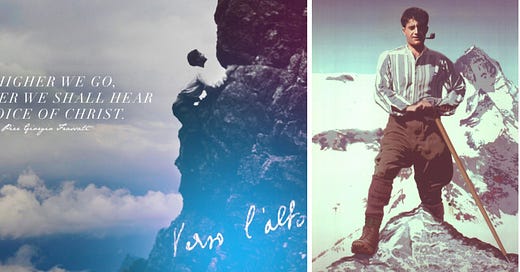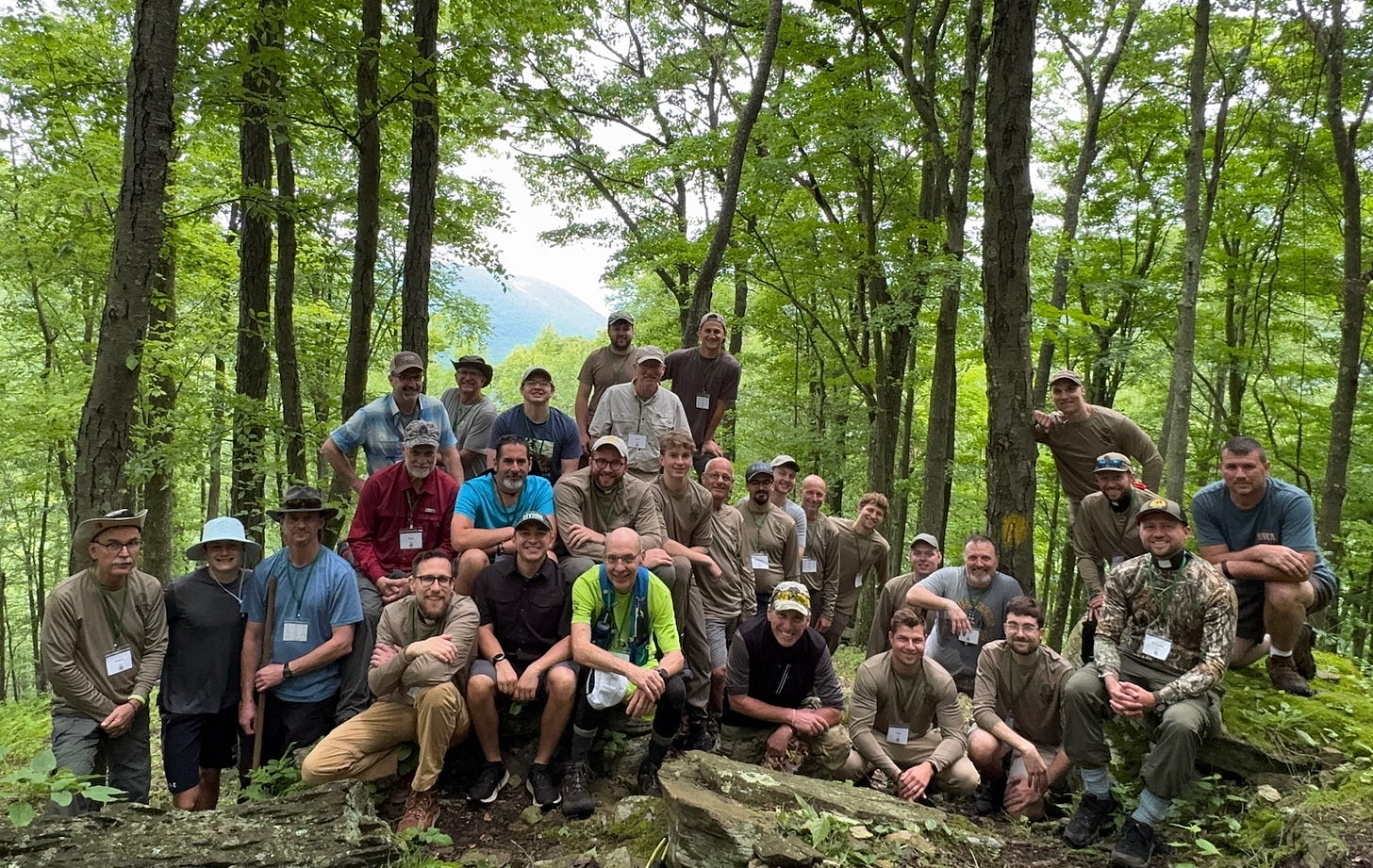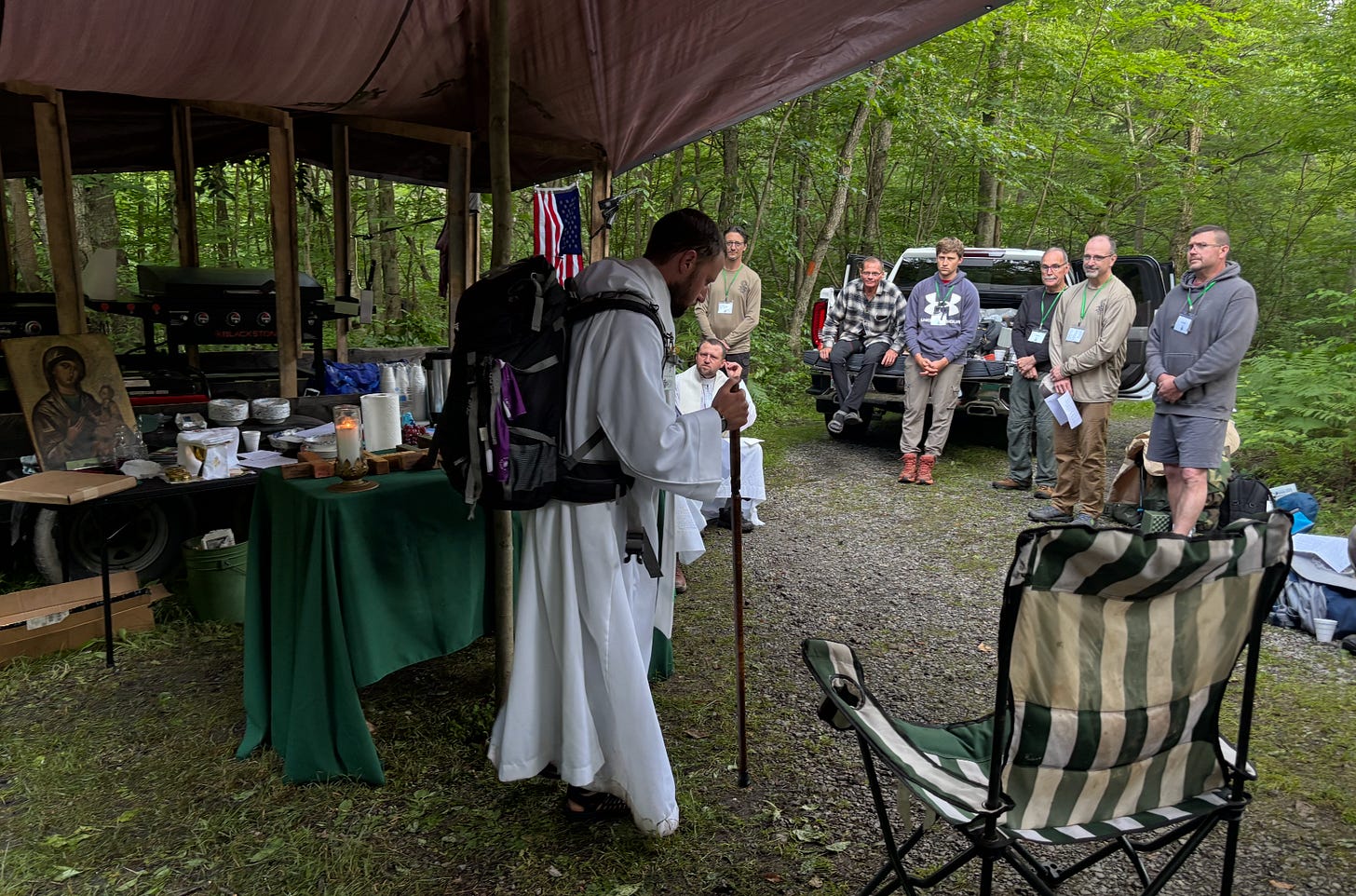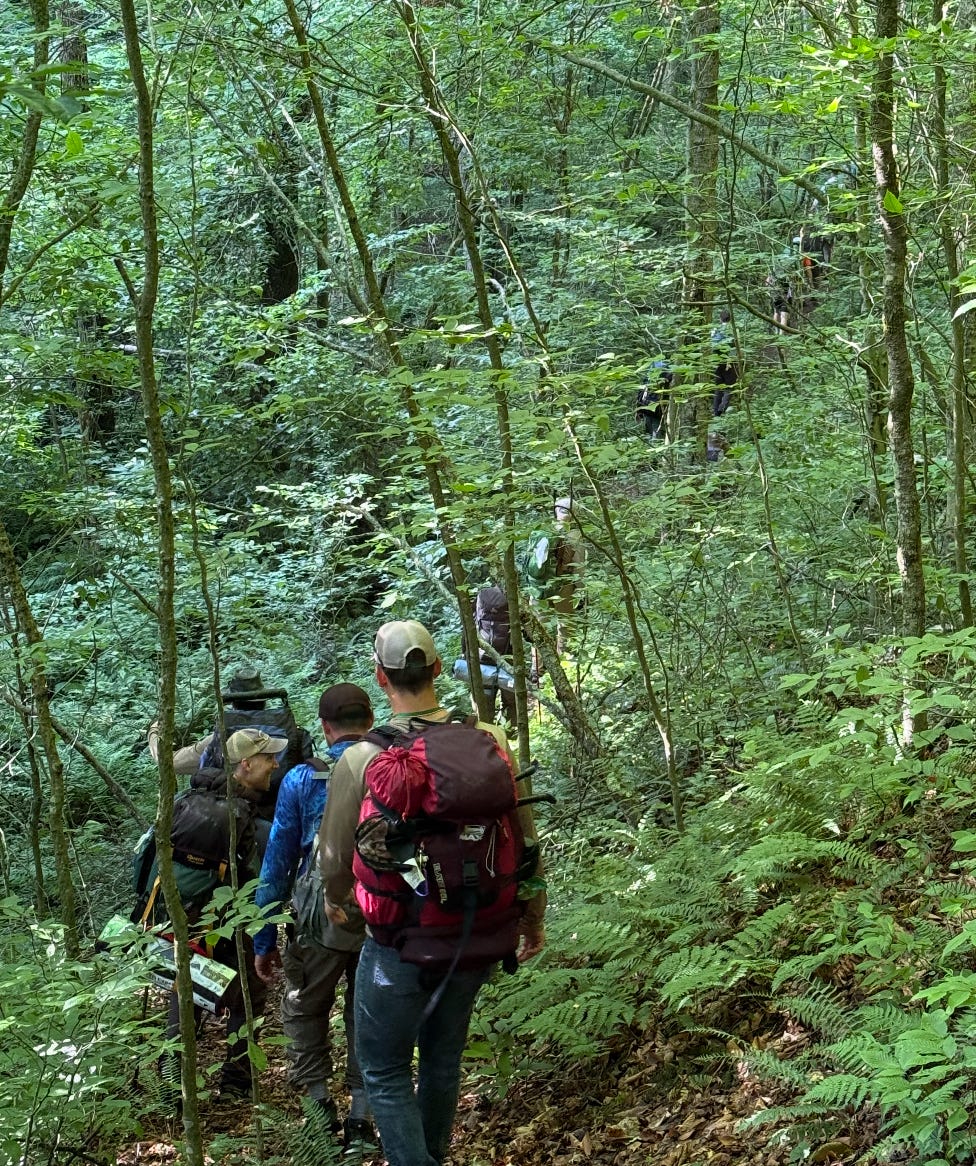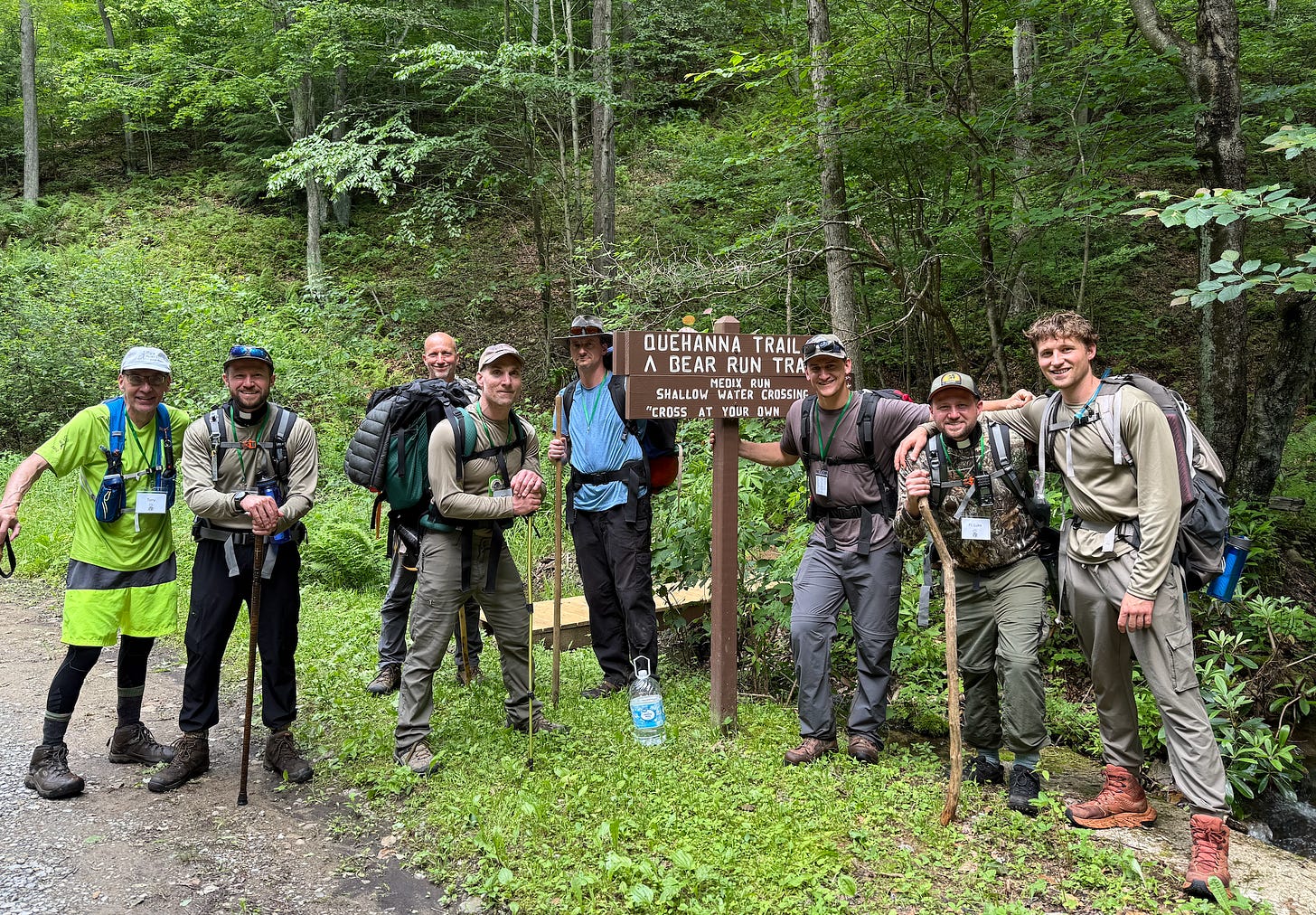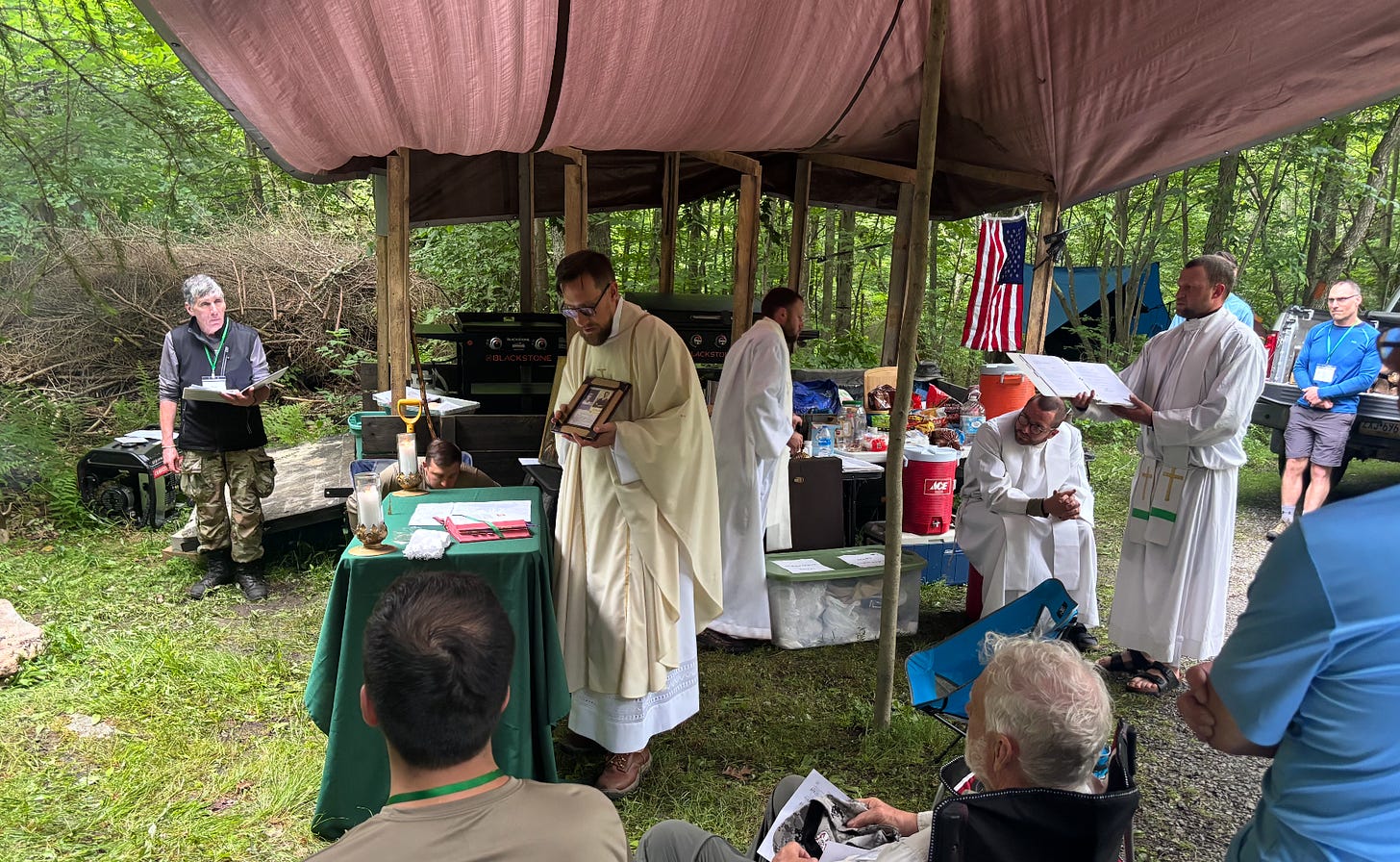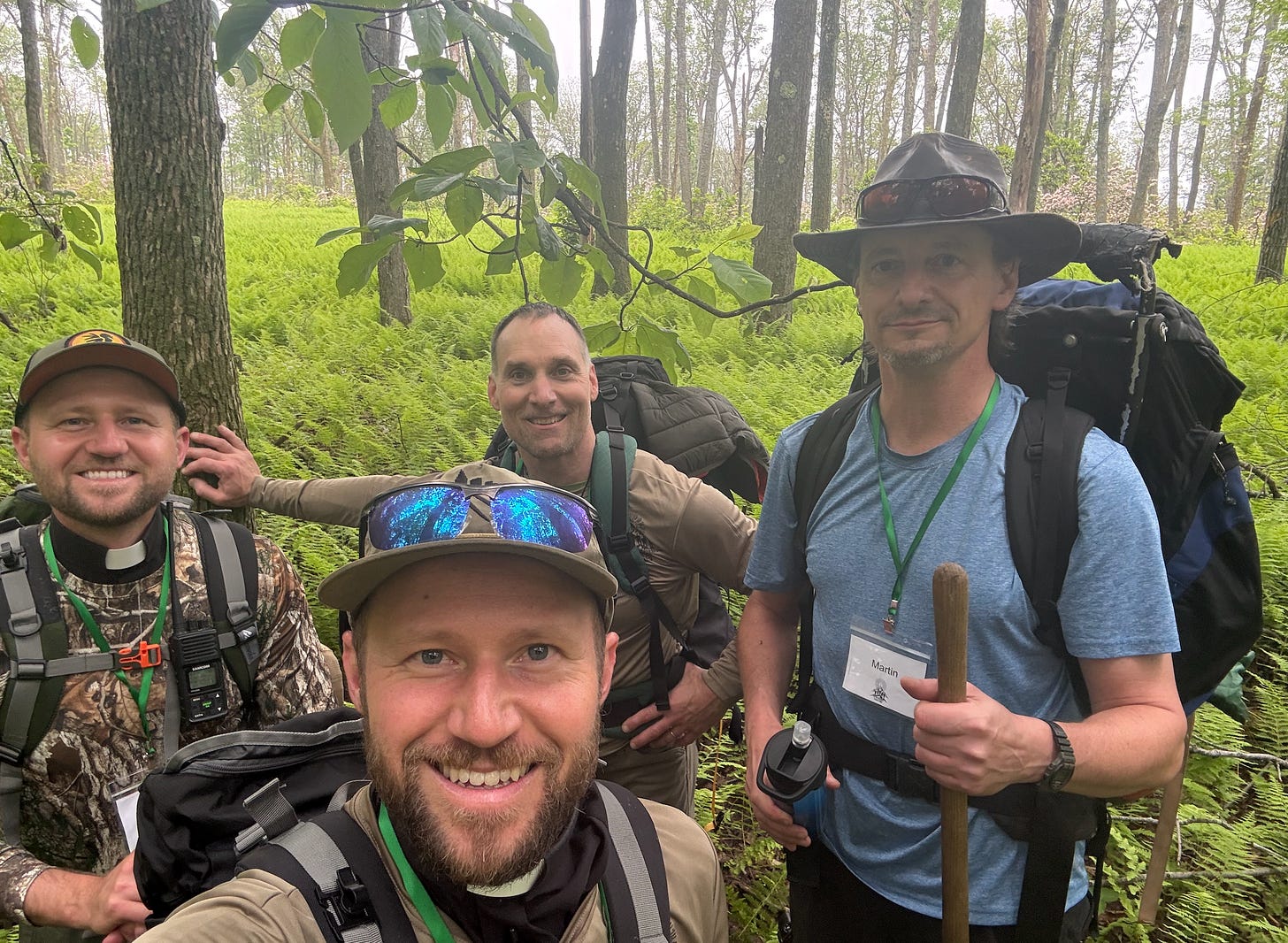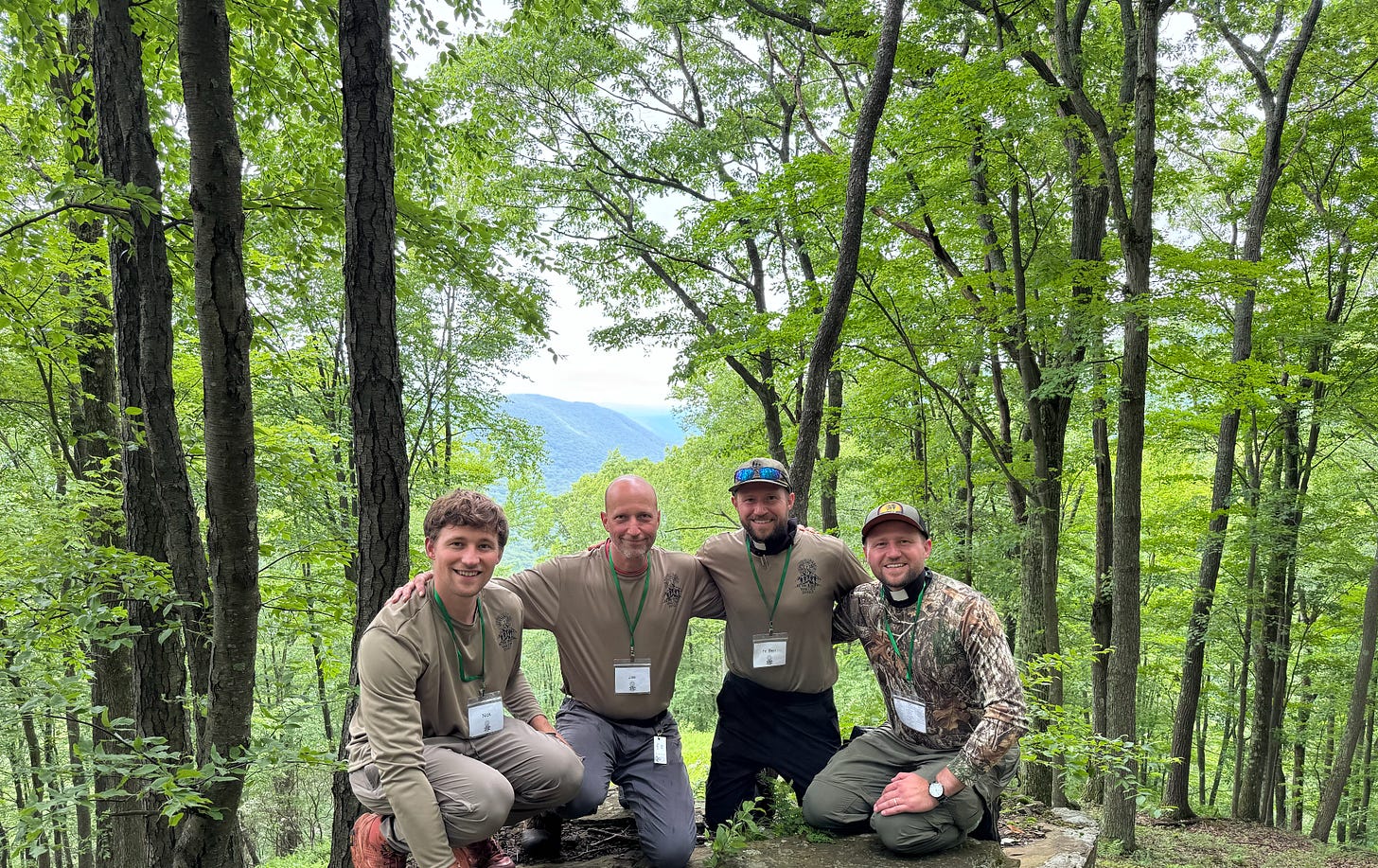Editor’s Note: This is a summary of a homily that Fr. Ben Daghir preached in the Quehanna wilderness while on the To The Heights retreat shortly before the group hiked its final day.
Brothers, three days, 20 miles, steep hills, deep ravines, rivers, rocks, rattlesnakes, deer, mountain laurel, the hot sun, rain showers, mud, the wilderness.
The sweat, the blisters, the fatigue — it’s been real. It’s been tough.
And we’ve loved it!
And yet, here we stand, nearing the end of this journey. And as I stand here with my hiking pack strapped to my back and my walking stick in hand, I can’t help but think of Blessed Pier Giorgio Frassati — our brother and our inspiration for this hike.
Two images of Frassati have been with us on this hike:
The first picture is of Frassati climbing a steep mountain, pushing upward with grit and determination.
Below the image are his famous words: "Verso l’alto" — "To the heights" — where we get the name for our hiking retreat. That’s not just about a mountain — it’s about striving upward toward holiness, toward greatness, toward Christ.
But if we look closely at this image, we notice — Pier Giorgio isn't climbing an easy mountain. Frassati is climbing the hardest mountain that he could find. And brothers, we know exactly what that feels like. I don’t need to explain it — our shoulders, our hips, our backs have been feeling it for miles.
We have had a unique relationship with our hiking pack these past few days, haven’t we?

It carries what we need but at the same time — it’s weighing us down. In particular, it’s during the steep climbs that it can frustrate us. Heavy. Awkward. Annoying. It slows us down. It makes us question why we packed the extra hoodie, those snacks we thought we’d need but never ate, or that extra water bottle that we never drank.
For Frassati, the weight wasn’t just equipment — it was something spiritual. Frassati understood the weight of his hiking gear as a sign that he was also carrying the burdens, the needs, and the sufferings of others around him.
The weight and the pain was a reminder that Frassati was called to sheer service in the name of Jesus. We know that Frassati would leave the Alps and return to the streets of Turin (Italy) in sheer service to the sick and to the poor. The weight of his hiking pack in the mountains helped to physically, mentally, and spiritually prepare Frassati to carry the weight of others in need around him.
And isn’t that exactly what Jesus invites us to?
We must carry the weight of others around us: “Truly I tell you, whatever you did for one of the least of these, you did for me” (Matthew 25:40).
The greater the weight of others that we carry, the greater the love: "If anyone wishes to come after me, he must deny himself, take up his cross daily, and follow me" (Luke 9:23).
The hiking pack — as annoying and heavy as it is — reminds us that as Christian men, we choose to carry weight. The weight of our families in supporting and protecting them. The weight of our brothers and sisters in need around us. The weight of a coworker down the hall going through a very difficult time. The weight of our responsibilities in our various vocations and professions. The weight of defending the truth of our faith. The weight of defending our brothers and sisters around us, and standing up for them. The weight of resolving conflicts around us. And, even the weight of others' wounds and sufferings who are a stranger - yet the Good Samaritan story inspires us to be another Christ to them.
To be a man in the name of Jesus is to carry the cross, and this often means to carry the weight of those around us. The weight of our hiking pack must inspire us to love to carry the weight of others through sheer service.
Reflection Questions:
Whose burdens am I carrying right now?
And do I see them as an annoyance… or as an invitation to love?
Have I been avoiding the weight God is asking me to carry — at home, at work, in my relationships, at my parish?
The second image of Frassati is powerful in a different way.
It’s him standing at the summit. Frassati has reached the top. But even then, what’s Frassati doing? He’s leaning on his walking stick. Even after the hard part, Frassati still leans. Frassati still relies on support.
It reminds me of King David. When was David at his strongest? Not when he wielded the sword, not when he commanded armies — but when he leaned wholly on the grace of God.
When was King David at his weakest? When he relied on his own, weak strength.
But what happens when we lean only on ourselves? Burnout. Failure. Isolation. Selfishness. Pride. Arrogance. Sin. We fail to be the men we are called to be.
King David slowly came to know, as we often forget, that willpower only takes us so far. The real strength comes from leaning on the Lord. We must not be men of our own strength but rather men of grace.
As David prayed in Psalm 23: "Your rod and your staff — they comfort me."
Brothers, that walking stick in our hand — it’s a reminder that we must lean on something beyond ourselves. As fallen men, we default to pride, to independence, to comfort, to avoiding sacrifice, to pushing through on our own. We think we can go much further and much higher without a walking stick. This hike has obviously proven to us that a walking stick is not just a hiking lesson — but a spiritual lesson.
How many of us over the past two days had someone say, “Would you like me to carry your hiking pack for a little while?” How many of us had another brother reach out his arm to pull us up a large step or over a stream?
How did we respond? Did we accept the help? Or, did we get a bit irritated or prideful with a brother offering help to us? Maybe out of a bit of pride we simply responded, “No, I’m fine” or “No, I’m good.” How many sinners have stated these words to Christ… “No, I’m fine/No, I’m good?”
As men, we must accept help. We must know, deep within our fragile bones, that we are in need of desperate assistance from the Lord and from others.
Take another look at Frassati, at a man so strong, adventurous, and motivated. Take another look at Frassati who had just climbed a mountain far greater than any we can find in this Quehanna wilderness.
The picture gives away the life of Frassati. He leaned into God’s grace. That’s why Frassati still has his walking stick. Sheer dependence on God. The sinner drops his walking stick, while the saint keeps using it.
The walking stick is grace. It’s God’s providence. It’s His mercy. It’s the sacraments, especially the Eucharist and Reconciliation. It’s your spouse. It’s your friend. It’s your brother next to you. And we need these walking sticks every step of the journey— not just on the uphill climb, but even when we stand on the mountaintop and descend the mountain to return home.
Reflection Questions:
Am I relying on my own strength… or am I leaning daily on the grace of God?
What does my "walking stick" look like in daily life?
Is it prayer?
Scripture?
Brotherhood?
Do I reach for it, or toss it aside?

Today, as we finish this hike, let’s not be men who leave behind the lessons from these mountains. Let’s be men like Blessed Pier Giorgio Frassati. Let’s descend from these heights into our streets, into the lives of those around us — willing to carry the weight of others and humble enough to lean on the grace of God.
Brothers, Verso l’alto — To the heights! But never alone. We climb and we descend… together.
*To view our Facebook page - To The Heights
Fr. Ben Daghir


